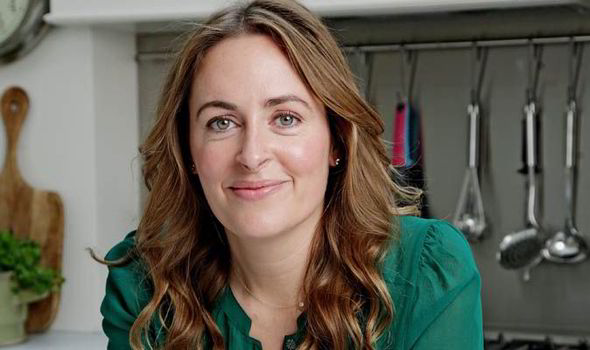SINGER Sam Smith has undergone something of a transformation over the past two weeks.
PUBLISHED Mon, Mar 23, 2015 in the Express

Amelia is helping to change attitudes to food. The Grammy award-winning writer of hits such as Stay With Me and Money On My Mind has shed a stone in just 14 days and credits his rapid weight loss to healthy eating guru and Metabolic Balance Coach Amelia Freer.
Amelia, who is a former personal assistant to the Prince of Wales, says it was her own bad diet that prompted her to train as a nutritional therapist. “I was eating a lot of pasta, bread, desserts and drinking wine. I felt rubbish and was exhausted all the time,” she says. By cutting down on alcohol, caffeine, gluten and sugar Amelia, 39, felt much better, her irritable bowel syndrome cleared up and she became determined to spread the word of healthy living. “I started to look at food as medicine, not as something to eat quickly to keep hunger at bay but as something that can nourish and protect us.”
For the past 10 years Amelia has worked as a nutritionist, helping her clients lose weight and change their attitude to food. Here are her five golden rules for a healthy life:
1 GIVE UP JUST ONE THING Don’t try to give up everything at once. Instead let go of just one part of your diet and focus on all the things you can include instead. Caffeine, sugar or alcohol are all a good thing to give up first. The foods all create a need for each other so giving up one could help break the links between them. “I started to look at food as medicine, not as something to eat quickly to keep hunger at bay but as something that can nourish and protect us” Gluten and dairy are two other food groups you might also consider. When you’re deciding what to give up, listen to your gut. It can guide you as to what you thrive on and what makes you feel under par. If you eat bread and bloat or dairy makes you gassy, there’s your answer.
2 DO A KITCHEN DETOX If you keep the wrong sort of food in your house you will end up eating it. Throw out breakfast cereals which are full of sugar and preservatives, processed and convenience foods, margarine (it’s much better to use butter if you can tolerate dairy), canned meals such as spaghetti hoops, gluten grains, salad dressings (make your own with apple cider vinegar, olive oil, mustard powder, fresh rosemary, garlic and sea salt), biscuits, cakes and sweets. Restock your fridge with protein such as eggs, chicken, meat and fish, feta cheese, pulses, nuts and seeds, salad and vegetables and dairy alternatives such as coconut milk. Use coconut and olive oil for cooking and gluten-free flour such as coconut or rice flour for baking or thickening sauces. Quinoa is a great alternative to rice and couscous.
3 STOP SNACKING Many of us believe we should eat little and often and spend the day grazing, barely going an hour without consuming something. Constant eating stimulates the production of insulin that can put our bodies into fat storage mode. The worst offenders are refined carbohydrates and sugary treats but even eating healthy snacks means our body has to work constantly to process them. It’s not a good idea to go cold turkey on snacking. You need to make sure you are eating properly the rest of the time. Every meal should be made up of fat, protein and plants to help fill you up and balance your blood sugar levels. Most importantly try not to snack in the evening. It is important for your metabolism to fast for 12 hours overnight so stop eating after dinner and don’t start again until breakfast.
4 BE CONSISTENT, NOT PERFECT One of the many reasons so many diets fail is because people can only do something restrictive for so long. We live in the real world where we have birthday dinners with friends, family gatherings and glasses of wine. Vowing never to eat or drink these things again is setting yourself up for failure. If you do eat something like pizza or a biscuit, enjoy it but don’t think that once you’ve eaten it you need to keep eating the same thing. Instead go back to how you were eating before.
5 EAT FEEL-GOOD FOODS These foods have all been proven to benefit the body.
• Fermented foods. Fermenting is an ancient way to preserve foods. Sauerkraut is probably the easiest to find but pretty much any vegetable can be fermented if you do it yourself. Fermented foods help to supply the digestive system with beneficial bacteria.
• Healthy fats. Coconut oil, avocado, organic and free-range eggs, wild salmon and olive oil are good sources and play a role in brain health.
• Dark green, leafy vegetables. Vegetables such as spinach, kale, broccoli and cabbage contain folate, which studies have shown may reduce symptoms of depression. This is because folate is used by the brain to make feel-good hormones including serotonin and dopamine.

